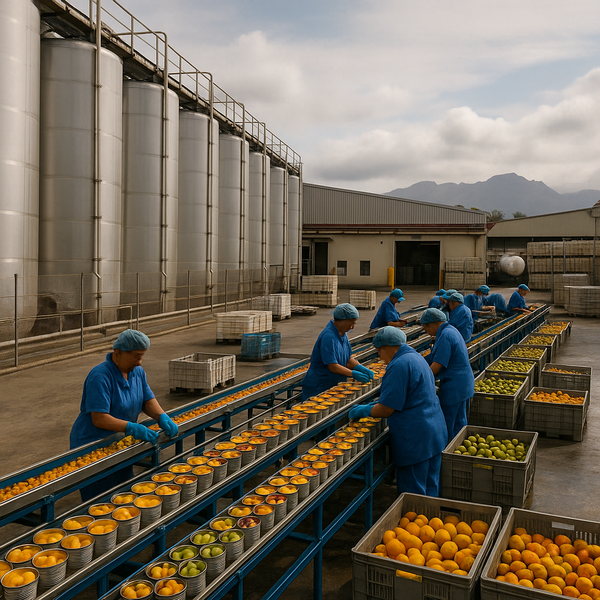After years of uncertainty and drawn-out negotiations, the sale of Langeberg and Ashton Foods by Tiger Brands marks a dramatic shift in the future of one of the Western Cape’s most vital agri-processing facilities. The business has been sold to a newly formed company owned by the Ashton Fruit Producers Co-operative and a development finance institution, marking the end of Tiger’s involvement in a factory it has operated for decades.
A Critical Asset for the Western Cape Economy
Based in Ashton, the fruit processing plant plays a vital role in the region’s agricultural economy. It employs over 3,000 seasonal and permanent workers and sources fruit from more than 250 local producers across Robertson, Ceres, Breede River, and the Klein Karoo. The factory processes peaches, pears, apples, apricots and guavas — with over 80% of production destined for export markets in Europe, China, Australia, and Japan.
For years, Langeberg and Ashton Foods also supplied canned fruit under the KOO brand, making it a key link in both domestic and international agri-value chains.
A Symbolic Sale with Real Stakes
Tiger Brands announced in 2020 its intention to exit the business to better align with its core strategy. Despite exhaustive efforts to find a buyer, talks repeatedly stalled, and the factory’s future hung in the balance. After extending operations season-by-season to keep it afloat, Tiger has now sold the business for a symbolic R1. The sale includes a significant R150 million commitment from Tiger towards a Community Trust, which will hold 10% equity in the new entity.
In addition, Tiger Brands will upgrade the factory’s effluent plant at a cost of R31 million, ensuring compliance with environmental regulations even after their exit. The company has also pledged ongoing support for school nutrition and local infrastructure in the Langeberg area.
From Corporate Control to Community Ownership
The Ashton Fruit Producers Co-operative, established in 2020, now steps into a leadership role after years of uncertainty. Backed by a development finance institution focused on job creation and sustainability, the new ownership model aims to keep the factory operational, profitable, and locally accountable.
This move mirrors other notable corporate exits from rural agri-processing in South Africa — including Nestlé’s closure of a dairy plant in the Eastern Cape and Pioneer Foods’ sale of grain silos in the Free State — where local players have attempted to step in and stabilise regional economies.
A New Era or a Cautionary Tale?
The sale is not just a business transaction — it’s a test of resilience and local leadership. Can Ashton’s producers preserve jobs, maintain quality, and grow export markets under local control? If they succeed, the Ashton model may offer a hopeful roadmap for other agricultural communities navigating corporate divestment.
Time, and the next few harvests, will tell.
